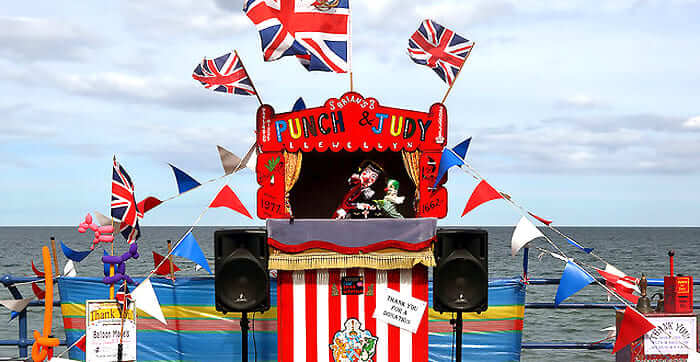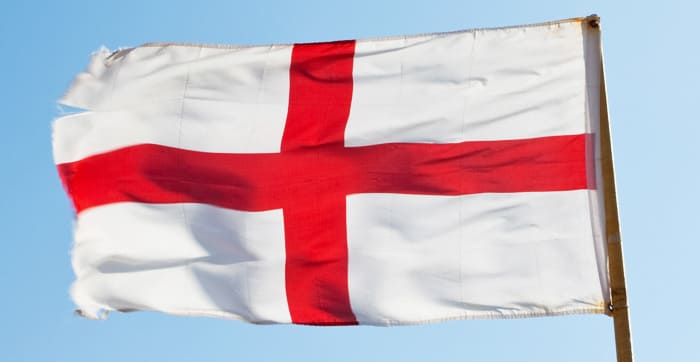St George the dragon-slayer
St George’s Day will be celebrated tomorrow (23rd April) in several countries, regions, cities and institutions throughout the Christian World including England, Portugal, Georgia, Ethiopia, Bulgaria and parts of Spain.
The above countries have adopted Saint George as their patron saint and the feast day commemorates the widely agreed-upon date of his death in the year 303 AD.
The Greek soldier was said to have slain a dragon that threatened the citizens of his native Cappadocia (in modern-day Turkey)… before being martyred for not renouncing his Christian faith and forever immortalised as a saint.
While the way in which St George’s Day is observed varies from England and in Spain – and I will talk about some of these things in a moment – the legend of St George is much more a story of unification than of division.
In England

How do the English celebrate St George’s Day? In theory, we sing “Jerusalem” at the top of our lungs, fly the St George’s Cross flag, indulge in some typical English food and watch a Punch & Judy show.
However, I can’t say I’ve ever done any of these things. Sure, I’ve gone to the pub for a pint and a chicken pie on St George’s Day before, but I must admit purely coincidentally.
Of course, the religious significance of the observance is profound in Christian strongholds like York, Canterbury and Windsor, for example, but this year’s feast day follows on directly from Easter Week, which rather overshadows it.
In Spain
In Spain, St George – San Jorge – is the patron saint of the Autonomous Communities of Cataluña and Aragón. Legend has it that St George inspired the then King Pedro I of Aragón to rise up against the Muslim settlers and take back Huesca from the Moorish principality of Zaragoza in 1096.
The saint supposedly appeared to the Christians on the battlefield, gave them renewed strength and vigour, and Huesca was subsequently recaptured after a long and bloody battle.

Nowadays, as well as the religious significance of St George’s influence on the Crusades and the Catholic reconquest of Spain, the day is also culturally significant in Aragón and Cataluña.
Gifts of roses and books are exchanged between loved ones on St George’s Day to coincide with World Book Day; a date chosen in honour of the deaths of Miguel de Cervantes and William Shakespeare at this time of year in 1616.
Final thought
I’m going to indulge one moment in my personal opinion as an English person, a Brit and a European citizen.
I don't think I am only talking for myself when I say that, on this date every year, English people are prompted to define “national pride” and justify what it means to them.
It makes me laugh how extreme right-wing groups like the English Defence League (EDL) and the British National Party (BNP) use the St George’s Cross as a poster for “pure Englishness / Britishness” (delete where appropriate) and to accompany often ludicrous nationalistic rhetoric.

For starters, the flag’s Greek Cross design was probably conceived in Genoa, Italy, as far back in the twelfth century. What’s more, St George (in whose honour the flag was made), was neither English nor had ever been to England. In fact, he was of Greek ethnicity on Turkish soil, was a nationalised Roman and, according to Greek tradition, was of Syrian descent on his mother’s side.
So, when I hear the same nationalist nonsense about “making England / Britain great again” (again, delete where appropriate) – a large amount of British citizens voted for Brexit on the same shallow prejudices – I am disappointed that vain, short-sighted and misplaced national pride gets in the way of the unification of peoples that genuinely make nations stronger.
 en
en



 Vlaams-Nederlands
Vlaams-Nederlands
0 Comments
Leave a Comment
DISCLAIMER
The opinions and comments expressed by contributors to this Blog are theirs alone and do not necessarily reflect the views of VIVA Homes Under the Sun Ltd, any of its associated companies, or employees; nor is VIVA to be held responsible or accountable for the accuracy of any of the information supplied.
Have you got something to say?